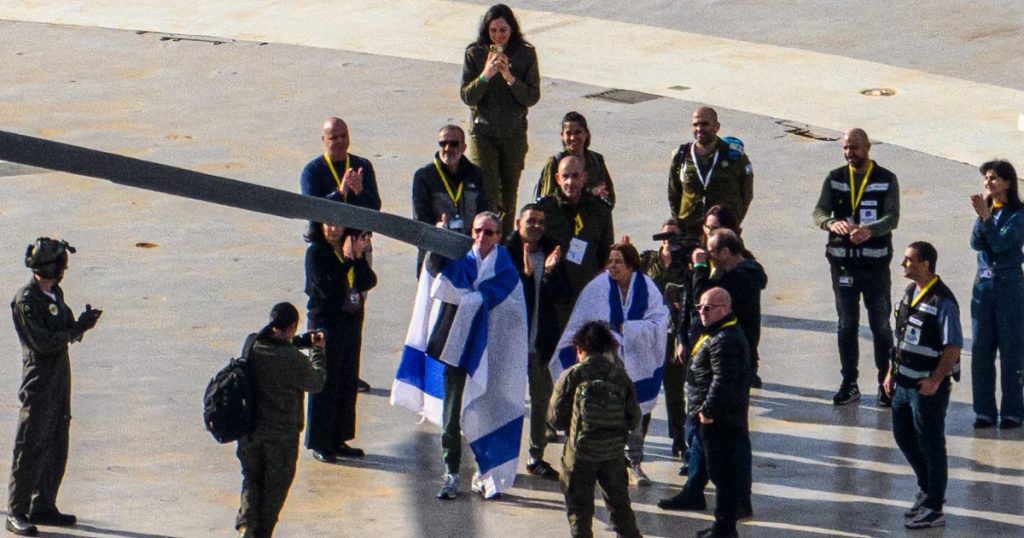Hamas Suspends Hostage Release, Blames Israel for Ceasefire Violations
Hamas announced on Monday that it would be suspending an upcoming hostage release in the Gaza Strip, citing Israel’s alleged failure to adhere to the terms of a ceasefire agreement. The agreement, which went into effect on January 19, had brought a temporary pause to the brutal 15-month war in the Palestinian enclave. Hamas’ military wing, the Qassam Brigades, pointed to several Israeli violations over the past three weeks, including the delayed return of displaced people to northern Gaza, the blocking of aid deliveries, and ongoing shelling and gunfire in various parts of the strip. As a result, the hostage handover scheduled for Saturday has been indefinitely postponed. Abu Obeida, a spokesman for the Qassam Brigades, stated via social media that the suspension would remain in place until Israel "commits to and compensates for the past weeks retroactively."
The decision has raised alarm among the families of hostages, who are growing increasingly desperate for their loved ones’ safe return. The Hostages and Missing Families Forum issued a plea for help, urging mediating countries to intervene and prevent further delays. The group emphasized the dire conditions faced by hostages, citing "shocking evidence" from recently released individuals and the frail condition of three hostages freed last Saturday—Eli Sharabi, Or Levy, and Ohad Ben Ami. The forum stressed that time is running out and that all hostages must be rescued urgently from their horrific ordeal.
Families of Hostages Appeal for International Intervention
The emotional toll on the families of hostages cannot be overstated. For months, they have endured the agony of uncertainty, clinging to the hope of their loved ones’ safe return. The suspension of the hostage release has only exacerbated their anguish, leaving them in a state of panic and despair. The Hostages and Missing Families Forum has been vocal about the need for immediate action, calling on countries like Qatar, the United States, and Egypt, which have played a mediating role in the ceasefire talks, to step in and ensure the release process resumes without further delay.
The international community, particularly the mediators, has been crucial in facilitating the ceasefire and the hostage release process. Negotiators from these countries were set to finalize the details of the second phase of the ceasefire agreement, but Hamas’ announcement has thrown the entire process into jeopardy. The families of the hostages are not only pleading for the safe return of their loved ones but also for an end to the ongoing suffering of Palestinians in Gaza, who have borne the brunt of the conflict.
Israeli Officials Condemn Hamas’ Decision, Raise Alert Levels
Israeli officials have strongly condemned Hamas’ decision to suspend the hostage release, labeling it a "complete violation" of the ceasefire agreement. Defense Minister Israel Katz accused Hamas of breaking the terms of the truce and instructed the Israel Defense Forces (IDF) to heighten their alert levels in preparation for any possible escalation in Gaza. Katz emphasized the need to protect Israeli communities near the Gaza border, signaling that Israel is prepared to take decisive action if necessary.
The Israeli government’s response reflects its deep skepticism of Hamas’ intentions and its commitment to maintaining a tough stance in the conflict. However, the decision to suspend the hostage release has also raised concerns about the fragile state of the ceasefire. The agreement, which was meant to provide a temporary reprieve from violence, now teeters on the brink of collapse. The fate of the hostages, as well as that of Palestinian prisoners and detainees who were supposed to be released under the deal, hangs in the balance.
Trump’s Controversial Plan for Gaza Sparks Outrage
Amid the ongoing tensions, a controversial proposal by former U.S. President Donald Trump has added another layer of complexity to the situation. In an interview with Fox News, Trump floated a plan for the United States to take control of Gaza, with the goal of transforming it into the "riviera of the Middle East." Under the plan, Palestinians in Gaza would be relocated to newly built communities, allegedly for their safety and well-being. However, the proposal has been met with widespread condemnation across the Middle East and beyond.
Trump’s remarks have been particularly inflammatory, as they include the suggestion that Palestinians would not have the right to return to their homes after the enclave was rebuilt. "We’ll build beautiful communities for the 1.9 million people," Trump said, adding that the new communities would be located "a little bit away from where they are, where all of this danger is." The White House press secretary, Karoline Leavitt, attempted to downplay the backlash, insisting that Trump was "committed to rebuilding Gaza and to temporarily relocating" Palestinians during reconstruction efforts.
Humanitarian Crisis in Gaza Deepens
The war in Gaza, which began with a Hamas terrorist attack on October 7, has already caused unimaginable suffering. According to local health officials, nearly 48,000 people have died in the conflict, with many more injured or displaced. The humanitarian crisis continues to worsen, with aid organizations struggling to reach those in need due to ongoing violence and restrictions on aid deliveries. The suspension of the hostage release and the fragile state of the ceasefire have only deepened the uncertainty and despair felt by civilians on both sides of the conflict.
As the situation in Gaza remains precarious, the international community is under increasing pressure to act. The suspension of the












